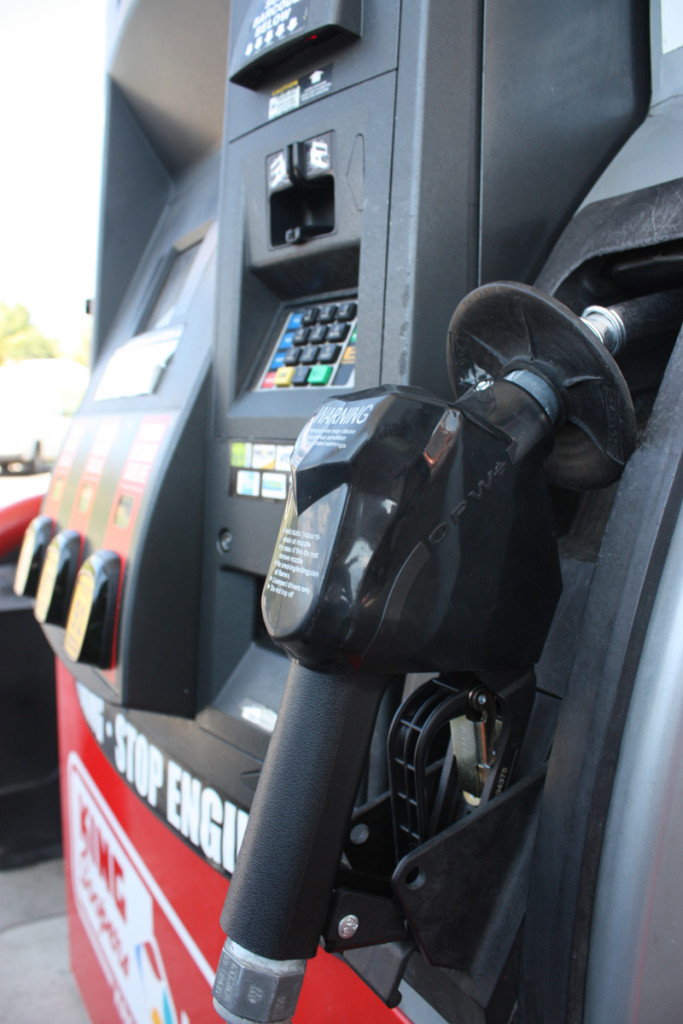Blake: Funding transportation needs adds fuel to the fire
If you are looking for an opportunity to pay higher taxes, this is your year.
Already on Colorado’s 2016 ballot is a single-payer health plan that would boost the state income tax rate to 14.63 percent, highest in the nation.
On its heels comes a planned initiative sponsored by the Colorado Contractors Association, which wants more money to build roads and mass transit projects.
Not by increasing the state gasoline tax, now 22 cents a gallon, but by increasing the state sales tax, now 2.9 percent, by up to three-quarters of a cent.
The final figure has yet to be determined, said Bill Ray, spokesman for the planned initiative. The organizers have until March 25 to propose their final ballot language.
They are working backwards from a goal of raising $500 million to $600 million more per year, which under the Taxpayer’s Bill of Rights (TABOR) has to be listed on the ballot question. They will consider the state’s current revenue stream and then figure out how much higher the tax rate must be to raise the money.
If taxes are a must, user-pay levies are generally considered the fairest. Those who drive their cars over the roads pay their taxes at the pump. Those who don’t drive don’t have to pay.
But earlier polling by the CCA determined that an increase in the gasoline tax would be “roundly rebuffed” by voters, said Ray.
So the group plans a higher sales tax, which apparently the voters regard more favorably.
Perhaps a public lack of interest in the fairness of taxes is not surprising in a twisted year that features crony capitalist Donald Trump leading in the race for the Republican presidential nomination and socialist Bernie Sanders running strong on the Democratic side.
Putting a sunset date on a new tax used to help its chances. But no decision has yet been made on a possible termination date for the transportation sales tax, said Ray. Again, early polling showed “mixed support” for it, strange as it seems.
Obviously the contractors would prefer making the tax permanent instead of having to go back to the voters from time to time, but they’ll go with a sunset if they have to.
The extra money would be constitutionally required to go to the state’s Highway Users Trust Fund (HUTF), and couldn’t be tapped by hungry lawmakers who might prefer to spend it on other projects. The HUTF already divides the money among the Colorado Department of Transportation, county governments and city governments according to complicated formulas, with the state getting about 60 percent. The new money not going to mass transit would be allocated the same way.
The contractors hope that keeping the formula the same will win the support of the Colorado Municipal League and the counties’ trade association as well.
Sales taxes for highways have been proposed before. In 2006, Republican gubernatorial candidate Bob Beauprez casually revealed in an editorial board meeting with the Rocky Mountain News that he would replace the 22-cents a gallon gasoline tax with a 1-cent increase in the state sales tax.
He later scaled that down to a 0.77-cent increase, since 1 percent would have raised more than the gasoline tax did, and he wanted his plan to be revenue-neutral.
Needless to say, Democratic rival Bill Ritter made an ad condemning not only Beauprez’ gas tax plan, but his support for a 23 percent national sales tax. You may recall Ritter won that election.
The CCA, of course, would not replace the state gasoline tax but add another levy onto it.
Perhaps the CCA should consult more closely with the American Road & Transportation Builders Association in Washington. Its president, T. Peter Ruane, recently wrote The Wall Street Journal in defense of states that have raised their gasoline taxes. “The gas tax works because it is fiscally responsible, and the beneficiaries of the transportation system are the users who are paying for it.”
Not so much if the CCA gets its sales tax increase passed.
The contractors may wait as long as possible to see if the legislature decides to go along with Gov. John Hickenlooper and exempt the hospital provider fee from TABOR on grounds that it really is a fee and not a tax. Attorney General Cynthia Coffman, a Republican, sided with Hickenlooper on the issue Monday.
The almost $700 million the hospital charge raised last fiscal year could all be spent on pet projects — including roads — if the money doesn’t have to be returned to taxpayers via TABOR. But conservative legislators disagree with the AG on this one and aren’t likely to act on the issue before the March 25 initiative-filing deadline.
You have a good chance of getting to vote on a higher sales tax come November.
Longtime Rocky Mountain News political columnist Peter Blake now writes once a week for CompleteColorado.com. Contact him at pblake0705@comcast.net You may re-publish his work at no charge and without further permission; please give full credit to Peter Blake and www.CompleteColorado.com.

Leave a Reply